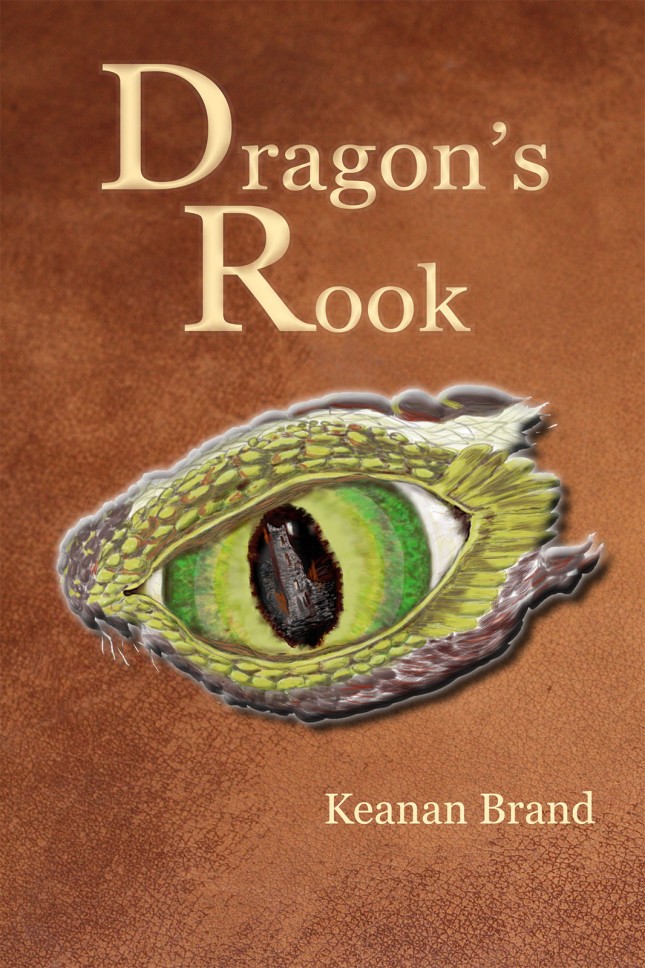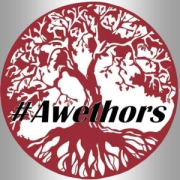NY Literary Magazine has been shut down by social media negativity after an ill-timed contest notification was sent on Christmas Day.
Was such an attack warranted?
I don’t know the truth, but I do admit to looking askance at the “nomination”. I’d never heard of the publication, and was unsure of the contest’s legitimacy.
And the magazine sure seemed to cave easily to the accusations.
However, there is an endorsement from Writer’s Digest, and one from the NY Times, either of which could have been confirmed after a simply inquiry. Did any netizens investigate before crying “Fake!” to the world?
Below are the invitation and the response from the magazine. Judge for yourselves.

Merry Christmas and Congratulations!!!
Dear Keanan,
You were nominated for the NY Literary Magazine “Best Story Award”.
Click here to submit your entry:
https://NYLiteraryMagazine.com/Best-Story-Award
Submission period ENDS on December 31st, 2017.
Merry Christmas!
Best wishes,
The NY Literary Magazine
PS: You can now add to your bio and credentials
that you are a 2017 Best Story Award Nominee.
“The prestige of such literary awards is immense for an author…awards drive up sales” – The NY Times
“Can do wonders for your writing career… one of the best ways to get your writing noticed!” – Writer’s Digest
Re: NY Literary Magazine Scam
Dear Author,
This is an official email from the NY Literary Magazine (NYLiteraryMagazine.com) regarding the Best Story Award contest, the nomination emails, the scam complaints, and the cyberbullying attacks upon our authors and our magazine. (This is the last email you will ever receive from us.)
What is this about?
On Christmas, an email was sent from NYLiteraryMag.org telling authors they were nominated for the Best Story Award contest and inviting them to submit their book to our contest.
It appears these emails angered people and caused them to believe our contest is a scam.
We would like to apologize for any annoyance, confusion, disappointment, or aggravation which the marketing email you received on Christmas may have caused you.
Additionally, there have been many inaccurate accusations circling around and cyberbully attacks upon authors who were awarded our award.
This has ruined our business and caused us to permanently shut down our magazine and contests.
Everyone who purchased an entry into our contest has been refunded.
After years of work on this magazine, we have had to fire our entire team of loyal, hard-working, full-time employees.
Who are we?
The NY Literary Magazine was a print and digital magazine.
We published free-to-read digital poetry anthologies, ran free-to-enter short story contests and poetry contests, interviewed authors, and wrote helpful articles.
The scam allegations are regarding an email sent out from NYLiteraryMag.org about our “Best Story Award” contest.
This is indeed a book contest we started and were running on our website with an extremely affordable reading fee.
What happened?
Regretfully, we outsourced our marketing to an Asian company to help us spread the word about our Best Story Award contest.
We believed they were experts and could help us reach authors.
It was our terrible mistake to entrust the entire marketing campaign in their hands including the marketing methods, approach, and text.
They sent out a marketing email on our behalf, from an email at nyliterarymag.org, at an unexpected time for USA time zone on Christmas.
Unfortunately, it appears they chose the wrong approach and terminology when inviting authors to our contest by telling them they were nominated instead of simply informing them of our contest and inviting them to join it.
It was our terrible mistake not to closely supervise and monitor each marketing action they did and the text they used.
For other businesses such as VIP Entrepreneur clubs (with ~$1,000 annual membership fees), sending a nomination email instead of an invite to join their clubs worked very well. Our marketing agency, therefore, presumed this was a good way to approach authors as well. They even thought that authors who didn’t want to/couldn’t afford the $15 entry fee to our contest would still be happy to be nominated and be able to mention it in their bio.
They did not think there would be an issue with nominating multiple authors.
Nor did they think it would annoy authors to be nominated.
We apologize to all the authors who feel they were misled by being nominated.
In reply to the inaccurate accusations:
We are shocked at the number of inaccurate allegations which are circling on social media regarding us, our magazine, our anthologies, and contest. To make matters worse, some forum threads are locked and comments disabled on websites so we can’t even answer the accusations.
“The award seal is fake.”
The award seal is a PNG image. What exactly can be fake or “real” about a PNG image?
We never claimed winners would receive a physical, solid gold sticker for their book.
“You’re selling award seals for $15. Everyone is an award winner, you just have to buy the award to win.”
These accusations are completely false. We are not selling award seals. We never have and we never will.
Nowhere on the sales page does it say we’re selling award seals.
$14.95 was the initial entry fee (which was later raised to $19.95) for the contest. Award winners were to receive an award seal for free.
Stating “everyone is a winner” is also false. We have 1 winner per month per genre.
Obviously, those spreading these false accusations and outright lies didn’t even visit the website or the contest’s page.
“The nomination email came from a mailing list. Only scammers use mailing lists!”
It takes a lot of time to contact people one by one. Even authors use mailing services to contact all their readers in one go rather than sitting for days sending individual emails.
“The authors you say won an award don’t have it on their book covers. It’s a scam! They didn’t really win!”
It is up to the award-winners if and how they choose to use our award seal.
All we do is inform the winners. Whether or not they choose to use our award seal is up to them.
We showed 3 examples of how awards CAN be used on a book’s cover for illustration purposes.
“Their free contests prove they’re scammers. It’s a trick, a way to make you like their magazine.”
Interesting. So we’re a “scammer” if we charge entry fees and we’re a scammer if we don’t charge entry fees.
Hard to please everyone. At least our poetry contest winners were happy when they won our free-to-enter contests.
“They say you were nominated but have to pay to be nominated.”
Authors nominated were not required to pay anything to be nominated.
Some nominated authors posted the picture of our trophy statute they were nominated for and used it for their marketing without paying to enter our contest. They didn’t have to pay to be nominated.
If they did not want to enter our contest, they did not have to. No one was forced to enter.
Those who wished to have a chance to win the awards paid the low entry fee and entered their book.
“Your contest is a scam. You are stealing people’s money.”
Some authors think our contest and magazine is a scam due to the marketing email they received about being nominated.
Our contest was a normal book contest with a low entry fee.
Many contests have entry fees. Whether or not the marketing email was misleading or annoying is another matter but that does not turn our entire magazine and contest into a scam.
“There is no submission page! It’s a scam!”
Due to a PayPal IPN issue, clients who purchased an entry were not automatically redirected to the contest submission page. Moreover, after many people reported us as spammers, our confirmation emails no longer reached our clients’ inboxes.

We have been dealing for the past days with hundreds of support tickets.
Each of our clients has been given the URL to the submission page where they successfully managed to submit their work, while we worked on fixing the IPN and form issue. It was only today that we realized what the issue was after PayPal sent us the email you see us above.
There is a contest submission page. People have been using it to submit their work.
These allegations that there is no submission page are false.
“Your stealing money! People can enter the same contest for free on another page on your site.”
Someone claimed our Best Story Award contest (which is a full-length story/book contest) is the exact same contest as our free-to-enter short fiction story contest. These two contests are completely different. One is for books the other for short fiction stories up to 2,000 words. Seemingly, this person did not visit the contest page or bother verifying facts.
“Stop trying to pretend you’re a literary agency!”
This comment which was posted on our “List of 20 Top Literary Agents Representing Fiction Authors” really surprised us.
The article is a resource listing 20 top literary agents with contacts to them or links to their websites.
Nowhere on or off our site did we ever claim to be a literary agency in any form or manner. We are not a literary agency. We are a magazine.
“Scammers always put “NY” in their name. It’s a red alert flag.”
NY is one of the biggest publishing centers. We had no idea the city/state’s name has a reputation as a scammer. That person should perhaps inform the NY Times to change their name and branding as well.
“The reviews you quote from authors are fake! They didn’t enter your contest. You’re using them to bait others.”
The authors who were featured on our sales page were all indeed awarded the “Best Story Award” by our magazine.
Yes, they did not pay to enter this contest. They submitted their book for review to our magazine on their own accord at some point during 2017.
We awarded them this honor because we believe their book is great and they deserve the award.
We have a right to award an award to anyone we want to.
We quoted exactly what they said in reply to our email in which we told them they won our award.
We did not quote anything which they did not say. We did not invent, modify, or add anything to what they said.
“On the PayPal receipt, it says Goodwin Media Group not NY Literary Magazine! Scaaaaam!”
Yes, the magazine is run under the umbrella of Goodwin Media Group (GMG). Many websites are owned by companies which have different names than the actual website domain name. We informed our customers on the thank you page after payment that they would see GMG on their PayPal receipt.
“The quotes on your page are fake.”
We have a section talking in general about how winning an award can help an author.
We quoted what various reliable sources such as The Independent Publisher and others have to say about how winning an award or being placed in contests is helpful for an author’s career, for their credibility, and for getting more sales etc.
We quoted true facts about winning awards and contests in general. We did not lie and say this is what they said about our contest.
“Your anthologies are fake.”
There is nothing fake about our anthologies. They are filled with original art and with poems written by real people who submitted their work to our mag and were overjoyed about being published. We even offer the anthologies in a free-to-read digital format.
Since the founding of the NY Literary Magazine, we have worked long and hard to turn it into a beloved and respectable magazine. We worked hard to design each of our free-to-read anthologies, read through thousands of free poetry and short story submissions, write articles to help authors, provide useful resources, and grow our readership. We did all this work in the past years at our own cost.
“You hired an Asian provider. Ha! That proves you’re scammer.”
American marketing agencies charge extremely high fees.
Many companies outsource their marketing to Asia/India.
There are tens of thousands of Asian marketing companies on sites such as Upwork.com
It is very hard to know who is good or not.
Simply hiring an Asian marketing company does not make us a scammer.
If an author hires a Phillipino assistant for $300/mo to answer emails, this doesn’t make the author a scammer either.
“The poor Asians! All the scammers always blame them.”
We are not the only company who has had bad experiences with outsourced providers.
It’s a matter of luck.
Yes, we know we made a mistake by not monitoring all the marketing campaigns.
But that one wrongly worded email does not make us scammers.
A big apology to all the authors who are suffering due to the lies spread about them “buying” an award seal from us…
For two years, we’ve been running free-to-enter poetry and short story contests and publishing free-to-read digital magazines and print anthologies. We even spent time training and monitoring 20 interns who read through thousands of free poetry submissions this summer.
We made tens of writers around the world happy. Writers published by our magazine sent us heartwarming thank you notes. Some said being published is what gave them the strength to continue writing especially after receiving discouraging letters from agents and publishers they contacted.
Others from extremely poor countries (Nigeria, Botswana, India) were overjoyed to have an opportunity to submit their work for free to a magazine and to have their voices heard.
We featured writers of every nationality, gender, race, religion, ethnicity, and sexual orientation.
Even our interns enjoyed working for us and were grateful for all the things they learned.
Since our anthologies are free, our poetry contests are free, and submissions to our magazine are free, we needed a way to sustain our magazine for the future, which is why we launched the Best Story Award contest.
We are completely devastated and shattered from the extent of hate mail, comments, messages, tweets, lies and false accusations that were posted online which have totally blackened our name and destroyed our magazine – all based on a single email with one wrongly-worded sentence.
It’s shocking how many people have posted blatant lies which weren’t based on any facts and how many more people have shared, retweeted, and quoted those lies without ever checking to see if it’s true or at least visiting our website.
Worse still, it is truly horrible to see how cruel some humans can be.
Some unsuccessful, jealous authors are spending days contacting the fans of authors who won an award from us or received a book review, telling their fans lies in an attempt to ruin the author’s reputation, turn their readers against them, destroy years of their hard work to build up their careers and readership, and ruin their lives for no reason and under the guise of “saving them from a scam”.
We love our authors and feel terrible to hear what some of them are going through thanks to these misguided people! This has been a heartbreaking Christmas.
We hope those people who spread the lies and worked so hard to destroy honest people’s lives are now satisfied.
We have closed our contest. Refunded everyone who entered.
There will be no more free-to-enter contests. No more free-to-read anthologies.
No more articles. No more anything.
We had the heartbreaking task of firing our team of loyal, hard-working employees. 10 people are now jobless after Christmas.
Please leave the poor authors alone. They did nothing wrong by receiving a book review from our magazine or receiving an award from us. Stop ruining their lives for no reason. Go work on your book instead.
To all the rest of you, we wish you all the best success in your career and a happy life!
Sincerely,
The NY Literary Magazine Team
Copyright © 2017 NY Literary Magazine, All rights reserved.
This is the last email you will ever receive from the NY Literary Magazine.
Our mailing address is:
NY Literary Magazine
Unit 31321 808 Commerce Park Drive
Ogdensburg, NY 13669
















